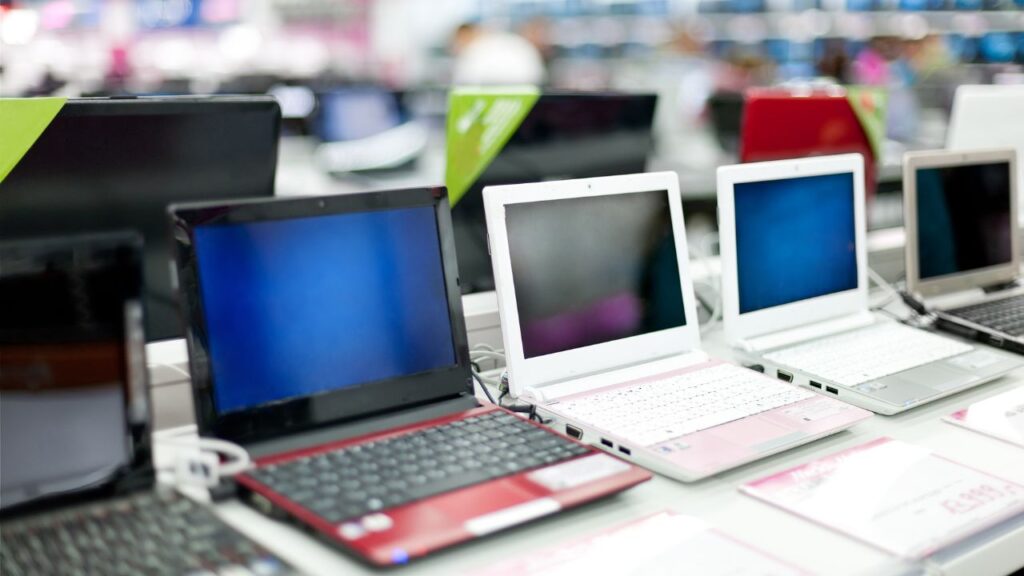The fast-paced evolution of technology, particularly in the laptop industry, continually introduces advanced models with enhanced features, improved performance, and innovative designs. However, for many in Kenya, accessing the latest laptops remains a significant challenge. This article delves into the difficulty of finding the latest laptop in Kenya and explores how these delays impact various segments of the population, including students, professionals, and tech enthusiasts.
The Landscape of the Kenyan Laptop Market
Overview of the Market
Kenya’s laptop market is primarily served by a combination of local retailers, online marketplaces, and a few multinational chains. Despite the growth in these channels, the availability of the latest laptop models often lags behind global releases. This lag can be attributed to several factors, including importation issues, regulatory hurdles, and the financial dynamics of the local market.
Key Players
The key players in Kenya’s laptop market include major retailers like Safaricom, Jumia, and smaller independent stores. These entities often struggle to keep up with the rapid release cycles of major laptop manufacturers such as Apple, Dell, HP, and Lenovo. Consequently, consumers looking for the newest models frequently encounter limited options and inflated prices.
The Causes of Delayed Availability
Importation and Distribution Challenges
One of the primary reasons for the delayed availability of the latest laptops in Kenya is the complex importation and distribution process. Laptops must go through rigorous checks and customs procedures before they can enter the Kenyan market. This process can be time-consuming and often leads to significant delays.
- Customs Regulations: Stringent customs regulations can slow down the entry of new laptops. Importers must comply with various documentation and tax requirements, which can cause further delays.
- Logistical Issues: The logistics of transporting laptops from manufacturers to Kenyan retailers also pose challenges. Issues such as shipping delays, inadequate transportation infrastructure, and port congestion can contribute to the problem.
Regulatory and Economic Barriers
Regulatory and economic barriers also play a crucial role in the delayed introduction of new laptop models.
- Bureaucratic Processes: The bureaucratic processes involved in obtaining the necessary approvals for new electronic devices can be slow and cumbersome.
- Economic Factors: Fluctuations in the Kenyan shilling and high import duties can make it economically unfeasible for retailers to stock the latest models immediately upon release.
Impact on Students
Academic Performance and Access to Resources
Students in Kenya are significantly affected by the delay in accessing the latest laptops. Modern laptops often come with features that enhance learning, such as faster processors, longer battery life, and improved connectivity options.
- Online Learning: With the rise of online learning, particularly due to the COVID-19 pandemic, having access to the latest laptops is crucial for students. Outdated or unavailable technology can hinder their ability to participate effectively in virtual classes.
- Research and Development: Students engaged in research and development projects may find themselves at a disadvantage if they cannot access the latest hardware and software tools.
Digital Divide
The delay in the availability of the latest laptops exacerbates the digital divide in Kenya.
- Urban vs. Rural: Students in urban areas are more likely to have access to newer models through local retailers and tech hubs, while those in rural areas may have to rely on outdated technology.
- Economic Inequality: Students from wealthier families can afford to import the latest models directly from abroad, whereas those from lower-income backgrounds must wait for these models to become available locally, often at a higher cost.
Impact on Professionals
Productivity and Efficiency
For professionals, having access to the latest laptops can significantly impact productivity and efficiency.
- Performance Needs: Professionals in fields such as graphic design, software development, and engineering require high-performance laptops to run demanding applications. Delays in accessing the latest models can hamper their work efficiency.
- Remote Work: The global shift towards remote work has made reliable and up-to-date technology essential. Professionals without access to the latest laptops may struggle with connectivity issues, slower performance, and compatibility problems with new software.
Competitive Edge
Access to the latest technology can provide a competitive edge in the professional world.
- Innovation: Professionals who have the latest tools can innovate and stay ahead of trends in their respective fields. Delays in accessing these tools can limit their ability to compete on a global scale.
- Client Expectations: In industries such as consultancy and IT services, clients expect professionals to use the latest technology. Not meeting these expectations can negatively affect business relationships and opportunities.
Impact on Tech Enthusiasts
Staying Updated with Trends
Tech enthusiasts, who are often early adopters of new technology, face frustration when the latest laptops are not readily available in Kenya.
- Reviewing and Testing: Many tech enthusiasts run blogs, YouTube channels, or participate in tech forums where they review and test new gadgets. Delays in obtaining the latest laptops can impact their ability to produce timely and relevant content.
- Community Engagement: Tech enthusiasts thrive on engaging with communities about the latest trends and innovations. Limited access to new models can stifle these interactions and reduce the vibrancy of tech communities in Kenya.
Innovation and Experimentation
Access to the latest technology is crucial for experimentation and innovation.
- Developing New Solutions: Tech enthusiasts often develop new software, apps, or hardware modifications. Without the latest laptops, their ability to experiment and innovate is restricted.
- Hackathons and Competitions: Participation in hackathons and tech competitions often requires the latest hardware to showcase cutting-edge solutions. Limited availability of new laptops can put Kenyan tech enthusiasts at a disadvantage in these global events.
The Role of Online Marketplaces
Opportunities and Challenges
Online marketplaces like Jumia and Kilimall provide an alternative avenue for Kenyans to access the latest laptops.
- Wider Selection: These platforms often have a wider selection of models compared to physical stores. They can source directly from international suppliers, potentially reducing the delay in availability.
- Price Variability: However, prices on online marketplaces can be higher due to shipping costs and import duties. There is also the risk of counterfeit products and fraudulent sellers.
Consumer Trust
Building consumer trust in online marketplaces is crucial for their success.
- Reliable Vendors: Ensuring that vendors are reliable and that products are genuine can help build consumer trust. This can be achieved through robust verification processes and customer reviews.
- Return Policies: Clear return policies and customer support can also enhance trust and encourage more people to purchase the latest laptops online.
Potential Solutions and Recommendations
Improving Importation Processes
Streamlining importation processes could significantly reduce delays.
- Simplifying Customs Procedures: Simplifying customs procedures and reducing bureaucratic red tape can expedite the entry of new laptops into the market.
- Efficient Logistics: Investing in efficient logistics and transportation infrastructure can help ensure that laptops reach retailers more quickly.
Government and Industry Collaboration
Collaboration between the government and industry stakeholders can address regulatory and economic barriers.
- Policy Reforms: Implementing policy reforms to reduce import duties and taxes on electronic devices can make it more feasible for retailers to stock the latest models.
- Public-Private Partnerships: Public-private partnerships can help develop initiatives to support tech education and access to modern technology.
Enhancing Online Marketplaces
Enhancing the reliability and accessibility of online marketplaces can provide more options for consumers.
- Vendor Verification: Strengthening vendor verification processes can ensure that only reputable sellers are allowed on the platform.
- Customer Education: Educating customers on how to identify genuine products and avoid scams can enhance their online shopping experience.
Conclusion
The challenge of finding the latest laptops in Kenya is multifaceted, involving importation and distribution hurdles, regulatory and economic barriers, and the limitations of local retail channels. These delays impact students, professionals, and tech enthusiasts, hindering their productivity, innovation, and access to educational resources. Addressing these challenges requires a coordinated effort from the government, industry stakeholders, and online marketplaces to streamline processes, implement policy reforms, and enhance consumer trust in digital platforms. By doing so, Kenya can improve access to the latest laptops and support its growing community of tech-savvy individuals. For more articles visit marginseye.co.ke



